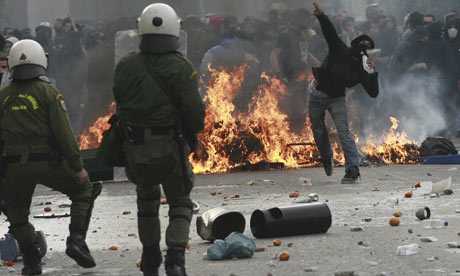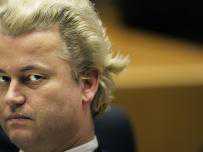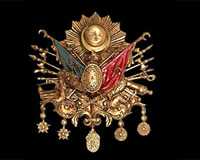COUNCIL OF THE EUROPEAN UNION
Council conclusions on enlargement/stabilisation and association process
2984th GENERAL AFFAIRS Council meeting
Brussels, 7 and 8 December 2009
The Council adopted the following conclusions:
“ENLARGEMENT STRATEGY
1. In line with the renewed consensus on enlargement approved by the European Council on 14 and 15 December 2006, and the conclusions of 8 December 2008, the Council welcomes the Commission communication dated 14 October 2009 on Enlargement Strategy and Main Challenges 2009-2010, and takes due note of the conclusions and recommendations therein. The enlargement process gives strong encouragement to political and economic reform in the enlargement countries and reinforces peace, democracy and stability in Europe.
2. The enlargement countries have been affected, to different degrees, by the global economic recession. The Council confirms that the EU will continue to help them to alleviate the impact of the crisis and prepare for sound recovery. The implementation of EU-related reforms underpins the efforts of the enlargement countries in this regard.
3. Coherent implementation of the renewed consensus on enlargement which is based on consolidation of commitments, fair and rigorous conditionality, better communication and the EU’s capacity to integrate new members, continues to form the basis for EU action at all stages of the enlargement process, with each country being assessed on its own merits. The rule of law, in particular the fight against corruption and organised crime, as well as strengthening administrative capacity, remains a major challenge which the enlargement countries need to address from an early stage of the process. The Council underlines that problems affecting the freedom of expression and the media need to be tackled as a matter of urgency. The Council continues to attach importance to the quality of the enlargement process and invites the Commission to make use of all instruments of the enlargement process, in particular benchmarks and impact studies.
4. The Council points out that the negotiating chapters for which technical preparations have been concluded will be opened or closed provisionally in line with the rules of an Inter-Governmental Conference, according to established procedures and in line with the Negotiating Framework.
5. The Council welcomes the support provided to the enlargement process through financial assistance, in particular in the form of the Instrument for Pre-Accession (IPA), and emphasises the essential link between enlargement policy priorities and financial assistance, in line with the results from the recent conferences designed to improve aid effectiveness, and welcomes the efforts by the Commission to closely align IPA annual programmes with the priorities identified in the Progress Reports.
Turkey
6. The Council welcomes Turkey’s continued commitment to the negotiation process. Positive steps have been registered in the areas of the judiciary, civil-military relations and cultural rights. The Council now expects that the implementation of the National Programme for the Adoption of the Acquis, as well as the appointment of a full-time Chief Negotiator, will further focus the Turkish government’s reform efforts.
7. Furthermore, the Council is encouraged by the government’s democratic initiative, including on the Kurdish issue. This should lead to concrete measures guaranteeing all Turkish citizens full rights and freedoms and should significantly improve the situation in the South-East. The Council welcomes the government’s efforts towards building of a national consensus, which will also be beneficial to the reform process, including the work on a constitutional reform.
8. The Council invites Turkey to step up the pace of reforms and to implement measures which have been started. Further efforts to ensure that Turkey fully meets the Copenhagen criteria are required in a number of areas, including freedom of expression, freedom of the press, freedom of religion in law and in practice for all religious communities, respect for property rights, trade union rights, rights of persons belonging to minorities, civilian oversight of the military and women’s and children’s rights, anti-discrimination and gender equality. The Council welcomes the declared intention of the government to step up its efforts in the fight against torture and ill-treatment, including on the issue of impunity.
9. The Council notes that the negotiations have reached a more demanding stage requiring Turkey to step up its efforts in meeting established conditions. By advancing in the fulfilment of opening and closing benchmarks and of the requirements specified in the Negotiating Framework, which cover inter alia implementation of the Accession Partnership and compliance with the obligations stemming from the Association Agreement, Turkey will be able to accelerate the pace of the negotiations.
10. Turkey is an important regional player, inter alia for the security in the Middle East and the Southern Caucasus and plays a key role in energy supply and the promotion of dialogue between civilisations. The Council thus welcomes the significant diplomatic efforts made to normalise relations with Armenia, resulting in the historic signature of protocols for the normalisation of relations in October 2009. It looks forward to the ratification and implementation of the protocols as soon as possible. The Council welcomes that in July 2009 Turkey signed the Intergovernmental Agreement on the Nabucco gas pipeline and underlines that the timely completion of the Southern corridor remains one of the EU’s highest energy security priorities.
11. The Council further welcomes the beginning of the reinforced dialogue on migration with Turkey and calls for concrete steps to be taken rapidly, in particular as regards readmission and border control, in accordance with the conclusions of the European Council of June and October 2009. The Council welcomes the start of a new round of talks on an EU-Turkey readmission agreement and stresses that adequate implementation of already existing bilateral readmission agreements remains a priority.
12. In line with the Negotiating Framework and previous European Council and Council conclusions, the Council underlines that Turkey needs to commit itself unequivocally to good neighbourly relations and to the peaceful settlement of disputes in accordance with the United Nations Charter, having recourse, if necessary, to the International Court of Justice. In this context, the Union urges the avoidance of any kind of threat, source of friction or actions which could damage good neighbourly relations and the peaceful settlement of disputes. Furthermore, the EU stresses again all the sovereign rights of EU Member States which include, inter alia, entering into bilateral agreements, in accordance with the EU acquis and international law, including the UN Convention on the Law of the Sea.
13. Recalling its conclusions of 11 December 2006 and the declaration of 21 September 2005, the Council notes with deep regret that Turkey, despite repeated calls, continues refusing to fulfil its obligation of full non-discriminatory implementation of the Additional Protocol to the Association Agreement. In the absence of progress on this issue the Council will maintain its measures from 2006, which will have a continuous effect on the overall progress in the negotiations. Furthermore, Turkey has not made progress towards normalisation of its relations with the Republic of Cyprus. The Council invites the Commission to monitor closely and specifically report on all issues covered by the declaration of the European Community and its Member States of 21 September 2005 in its forthcoming annual report. On this basis, the Council will continue to closely follow and review progress made, in accordance with its conclusions of 11 December 2006. Progress is now expected without further delay.
14.As emphasised by the Negotiating Framework, the Council also expects Turkey to actively support the ongoing negotiations aimed at a fair, comprehensive and viable settlement of the Cyprus problem within the UN framework, in accordance with the relevant UN Security Council resolutions and in line with the principles on which the Union is founded. Turkey’s commitment and contribution in concrete terms to such a comprehensive settlement is crucial.
1For Turkey the opening and provisional closing of chapters is made subject to the Council conclusions of 11 December 2006.







